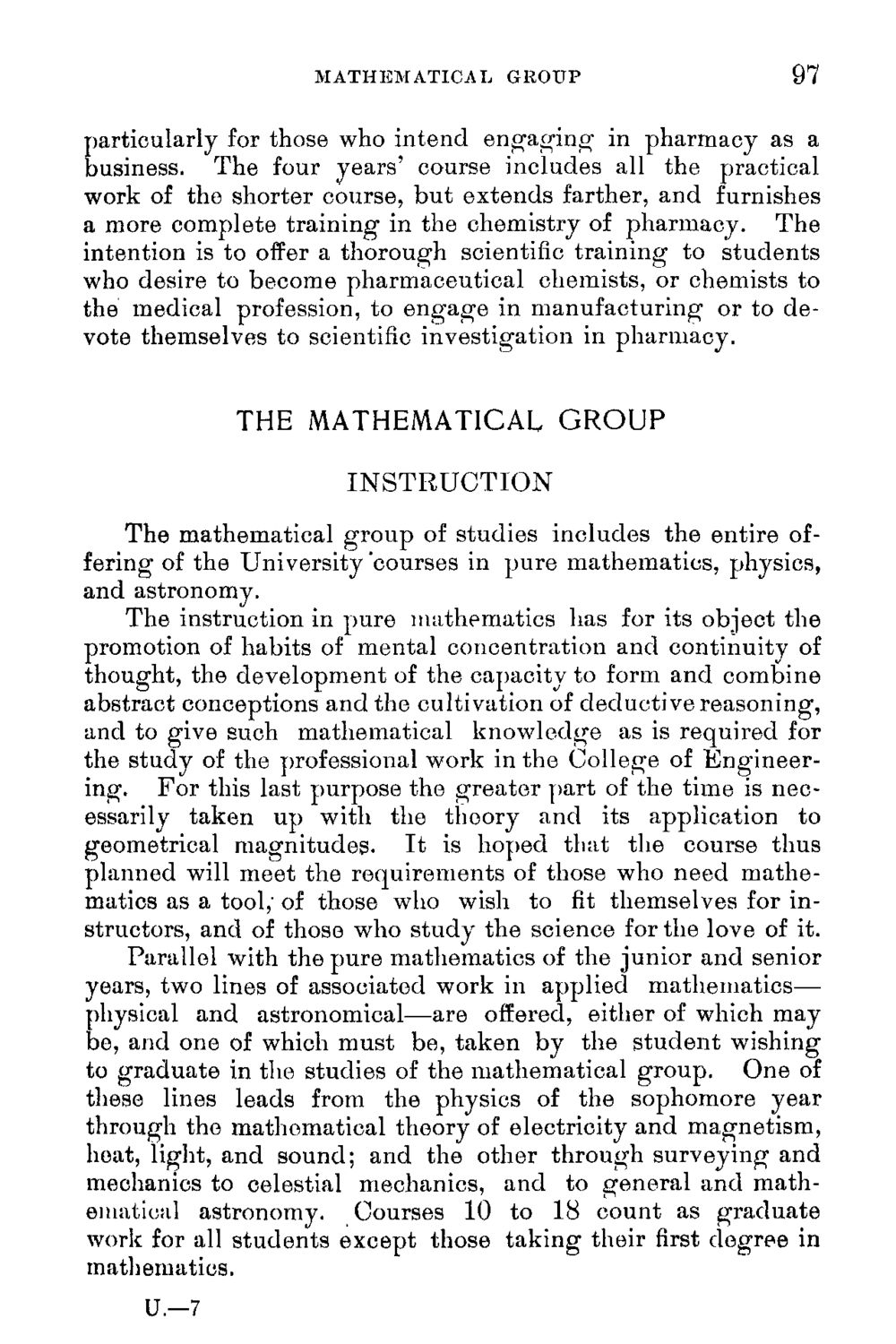| |
| |
Caption: Course Catalog - 1895-1896
This is a reduced-resolution page image for fast online browsing.

EXTRACTED TEXT FROM PAGE:
MATHEMATICAL GROUP 97 particularly for those who intend engaging in pharmacy as a business. The four years' course includes all the practical work of the shorter course, but extends farther, and furnishes a more complete training in the chemistry of pharmacy. The intention is to offer a thorough scientific training to students who desire to become pharmaceutical chemists, or chemists to the medical profession, to engage in manufacturing or to devote themselves to scientific investigation in pharmacy. THE MATHEMATICAL GROUP INSTRUCTION The mathematical group of studies includes the entire offering of the University'courses in pure mathematics, physics, and astronomy. The instruction in pure mathematics has for its object the promotion of habits of mental concentration and continuity of thought, the development of the capacity to form and combine abstract conceptions and the cultivation of deductive reasoning, and to give such mathematical knowledge as is required for the study of the professional work in the College of Engineering. For this last purpose the greater part of the time is necessarily taken up with the theory and its application to geometrical magnitudes. It is hoped that the course thus planned will meet the requirements of those who need mathematics as a tool,' of those who wish to fit themselves for instructors, and of those who study the science for the love of it. Parallel with the pure mathematics of the junior and senior years, two lines of associated work in applied mathematics— physical and astronomical—are offered, either of which may be, and one of which must be, taken by the student wishing to graduate in the studies of the mathematical group. One of these lines leads from the physics of the sophomore year through the mathematical theory of electricity and magnetism, hoat, light, and sound; and the other through surveying and mechanics to celestial mechanics, and to general and mathematical astronomy. Courses 10 to 18 count as graduate work for all students except those taking their first degree in mathematics. U—7
| |